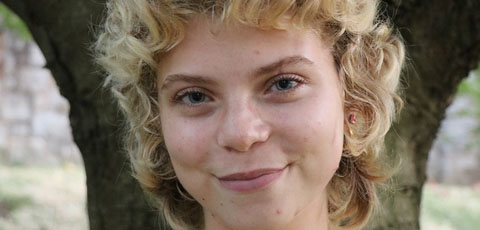One day, I woke up in the hospital and saw foggy images of people hovering over me. The next day, I woke up to my family singing ‘Happy Birthday’ to me in the ICU. That same day, I found out my head was shaved. A few weeks later, I was giving a eulogy about my father.
Now I’m here, back at school, writing like I used to and laughing like I used to. Except, my former best friend switched places with my new best friend — grief.
I actually hated grief at first.
It filled me with rage, envy and misery. All of these parasitic emotions required healing. I had to practice gratitude and prioritize love.
Grief was a monster to me on the day of my father’s funeral — there wasn’t even a prospect of healing in my mind. But, as soon as I saw how many people filled the church that day, I experienced a lull of some non-parasitic emotion.
I’m pretty sure it was love. A combination of gratitude and love. So, when in doubt, lean into your love.
I really preferred my old best friend, because grief is kind of annoying and follows me everywhere. Every time I reach for blueberries in the fridge, it’s there. Whenever I hear a song by Pet Shop Boys, it’s there. With anything Charlie Brown-related, grief just can’t let it go.
But whenever I reach for a couple of dollars to tip the person who pumps my gas or bags my groceries, grief is actually kind of nice to me. It reminds me of the charitable qualities my father had. It doesn’t feel heavy or burdensome, but uplifting and wholesome.
Grieving is understood as the outward expression of your loss. According to my therapist, however, grief is all the love we have for someone that we can’t show anymore.
It’s believing that your life didn’t change you, but that you changed your life.
There was much to be done in the six months following the funeral. Most importantly, I had a life to get back to. I set daily goals, and sometimes those goals were tiny. I became patient with myself even though I couldn’t use my hands for four months. I remember trying to stand for the first time after I was released from the hospital — my knees gave out. I couldn’t stand. I was embarrassed and even a bit disgusted that grief would bother to make an appearance at that moment. But, that was my goal for the day — learning how to stand.
As long as I had someone or something to be the keeper of my grief and be responsible for when my daily goals became unrealistic, an endurance for life started to restore itself.
I felt okay again. And then I felt horrible. I felt okay when my friends came over and we all sang together and viciously played the guitar. And then I felt horrible again. I felt okay when I started taking online classes through Lehigh. And then I felt horrible again. I felt okay when I dyed my hair pink. And then I felt horrible again. I felt really okay when I went to Uganda for two months and grief assigned my life meaning through helping others and practicing selflessness.
I had my moments, but I know just as much as grief is fleeting, happiness is fleeting. So grieving is believing in those tiny moments and breathing into those joyous feelings because those joyous feelings will give you back this happy life force.
I’ve learned that grief stays and sits in the most uncomfortable areas of your body, but love has this heroic factor to it. It makes you feel lighter and will lift you off your feet. Grief tells you there’s so much life to live, but it seems that there’s so little company to experience it with. However, love filters out the bitterness of grief and reveals the ripeness of reminiscing and realizing the legacy of love. As much as I hate it, grieving is a measure of our humanity — if we didn’t have grief, we wouldn’t have love.
When I turned to my friend and asked what the moral of this story should be, she replied, “You don’t have to know that now.”
So, whatever your grief looks like, ask your grief if it can believe in you — if it can believe in love. Lean into love, and paint your grief with a burning color of life.






Comment policy
Comments posted to The Brown and White website are reviewed by a moderator before being approved. Incendiary speech or harassing language, including comments targeted at individuals, may be deemed unacceptable and not published. Spam and other soliciting will also be declined.
The Brown and White also reserves the right to not publish entirely anonymous comments.
3 Comments
This is so beautiful Liana
This is such a profoundly thoughtful recounting of your grieving process. Thank you for sharing, it helps so much. We love you! xxoo
I am grateful for the information and the suggestions that you have provided. I will make an effort to understand it better for more.